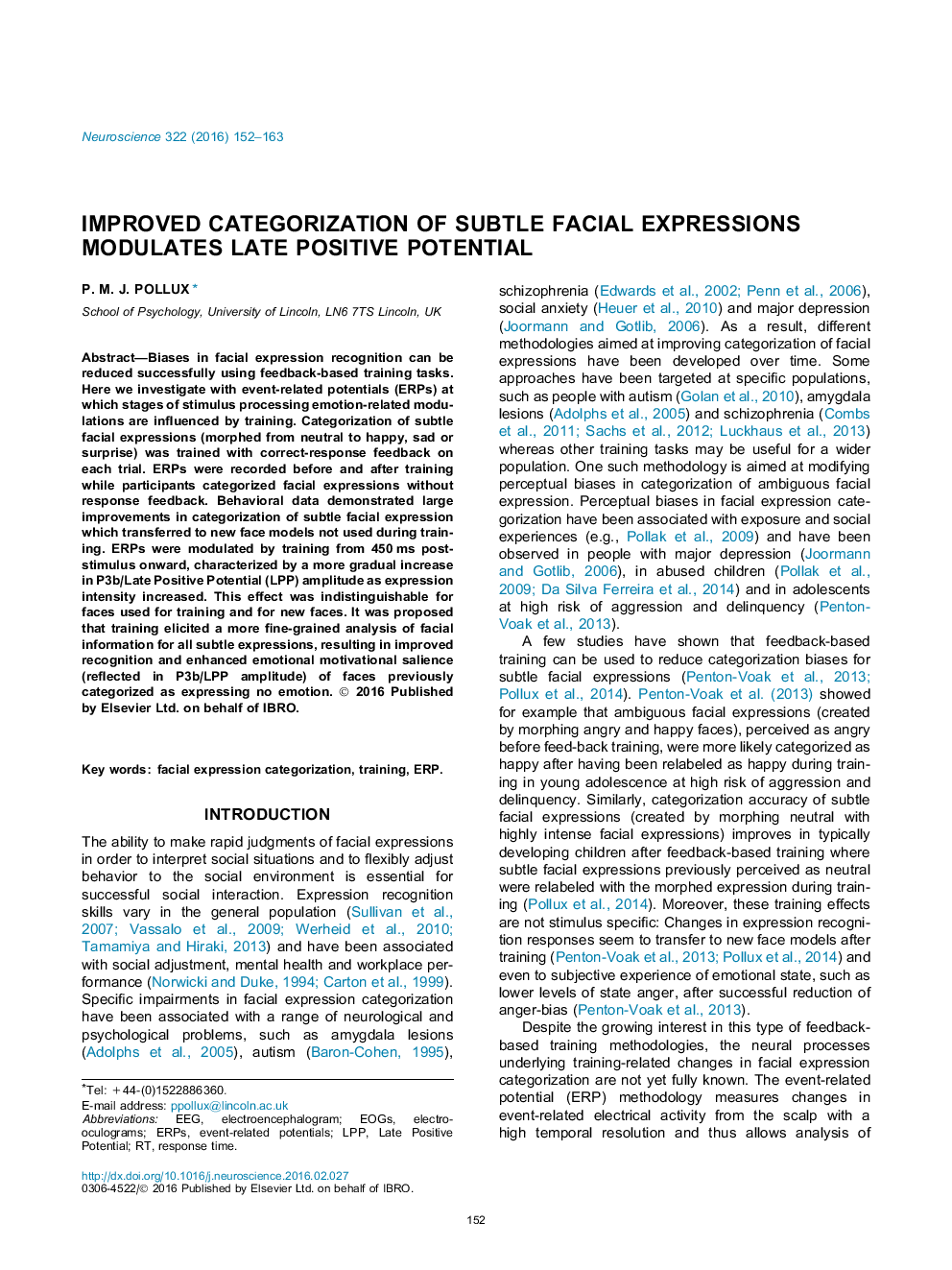| Article ID | Journal | Published Year | Pages | File Type |
|---|---|---|---|---|
| 6271181 | Neuroscience | 2016 | 12 Pages |
Abstract
Biases in facial expression recognition can be reduced successfully using feedback-based training tasks. Here we investigate with event-related potentials (ERPs) at which stages of stimulus processing emotion-related modulations are influenced by training. Categorization of subtle facial expressions (morphed from neutral to happy, sad or surprise) was trained with correct-response feedback on each trial. ERPs were recorded before and after training while participants categorized facial expressions without response feedback. Behavioral data demonstrated large improvements in categorization of subtle facial expression which transferred to new face models not used during training. ERPs were modulated by training from 450Â ms post-stimulus onward, characterized by a more gradual increase in P3b/Late Positive Potential (LPP) amplitude as expression intensity increased. This effect was indistinguishable for faces used for training and for new faces. It was proposed that training elicited a more fine-grained analysis of facial information for all subtle expressions, resulting in improved recognition and enhanced emotional motivational salience (reflected in P3b/LPP amplitude) of faces previously categorized as expressing no emotion.
Keywords
Related Topics
Life Sciences
Neuroscience
Neuroscience (General)
Authors
P.M.J. Pollux,
